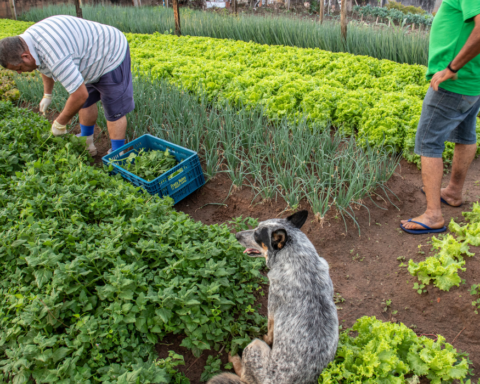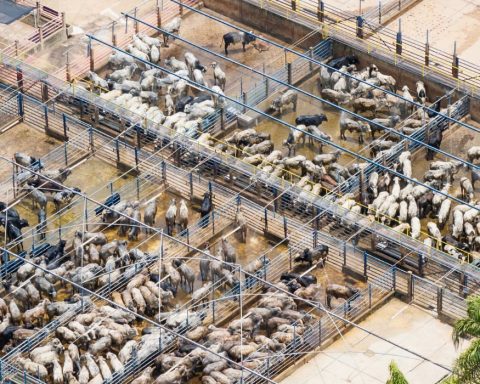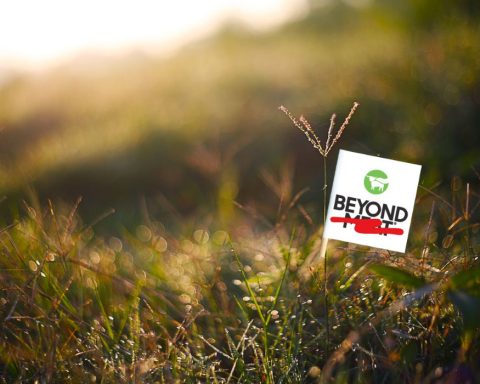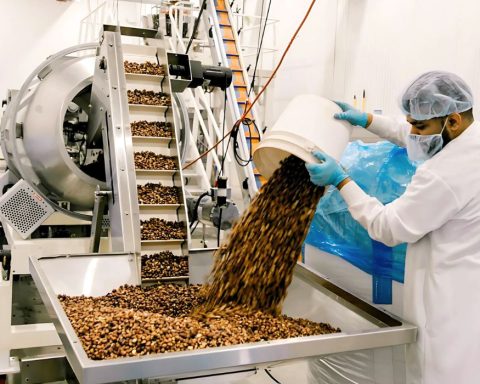In 50 years, the global population has exploded to 7.8 billion from 3.7 billion, placing enormous demand upon farmland. Chemical fertilizer, a pillar of last century’s Green Revolution, boosted crop production to feed a hungry planet. However, this bucolic landscape hid an alarming reality. Excess use of chemical fertilizer like nitrogen caused widespread soil degradation, a drop in plant nutrition and toxic algae blooms in waterways.
Nitrogen – which is usually combined with two other fertilizer macronutrients, phosphorous and potassium, and then sold as NPK – also exacerbates climate change. The world’s most widely used chemical fertilizer, at 100 million tonnes per year globally, synthetic nitrogen leaches into ground water as nitrates, which enter the atmosphere as the greenhouse gas nitrous oxide. N2O has 300 times the warming effect of carbon dioxide. To mitigate such effects, Ottawa has proposed a target of reducing agricultural nitrogen emissions by 30%, while new technologies and biofertilizers are germinating multibillion-dollar markets.
One of the bright new sprouts is Lucent Biosciences, a biotechnology start-up in Coquitlam, B.C. Five years ago, it began experimenting with solutions to mitigate soil degradation and nutritional decline caused by NPK. With $5 million in development funding, Lucent created Soileos, a biofertilizer that binds zinc, iron, boron and manganese to cellulose derived from waste pea, lentil, rice, coconut and corn husks, thereby preventing these micronutrients from leaching into the soil.
A patented technology makes the micronutrients bioavailable, meaning that plants’ needs determine the rate of release, says Lucent CEO Michael Riedijk. Adding cellulose also enriches dirt by enhancing the microbial biomass, similar to regenerative agriculture practices, says Lucent co-founder and vice-president Jose Godoy Toku. “Soileos is unique because it improves soil health.”
Soileos isn’t a replacement for macronutrient NPK chemical fertilizers but a complement that reduces nitrogen use, says Riedijk. It can also be applied alone or used with manure on regenerative farms, Godoy Toku says. Godoy Toku expects the product will be approved for use on certified organic farms by next year.
Indiscriminate use of NPK has caused soil infertility and led to higher soil salinity and alkalinity (when the pH rises above the optimum 6.0 to 7.0 to levels as high as 10). In Sub-Saharan Africa and Southeast Asia, a lack of micronutrients is linked to growth and learning-development problems in children, Riedijk says. “Crops today don’t have the same nutrient content they had 30 or 40 years ago. Generally, the iron content of crops has dropped 20% in the past few decades.”
Soileos is undergoing testing in 40 field trials of eight hectares each across Canada and the United States. Lucent, which works with Simon Fraser University’s 4D LABS, a materials science research institute, has already undertaken two years of field testing, growing 150,000 plants in 32 trials and analyzing 5,000 tissue samples. The data are striking. Corn fertilized with Soileos showed an average yield increase of 12%, tomatoes 26% and lettuce 30%. One trial, conducted with Agriculture and Agri-Food Canada, boosted cabbage yield by 50%.
Soileos is available commercially, with one tonne a day produced at the Coquitlam plant. The company aims to produce 10 tonnes a day within the next 12 to 18 months, eventually reaching 100 tonnes. Lucent hopes to test Soileos in Africa in 2022 to assess its effect on alkaline soils.
The climate crisis is exacerbated by decades of excessive nitrogen use. It is imperative that alternatives be developed to reduce environmental impacts and enhance crop yields to feed a growing number of hungry people around the globe.
Roberta Staley is a Vancouver-based author, magazine editor and writer, and documentary filmmaker.







